
Literature
H.A. World Services
CONFERENCE APPROVED LITERATURE
LITERATURE
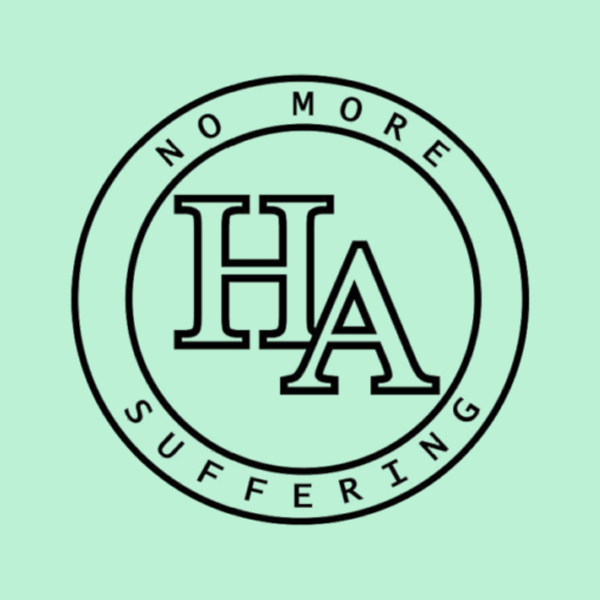
Step One
“We admitted we were powerless over heroin–that our lives had become unmanageable.”
Admitting we were powerless over heroin was a difficult task for many of us. We desperately tried convincing ourselves we were in control; at certain times felt we were, but ultimately found we were not.
Our loved ones pleaded with us about our heroin addiction. Despite our sincere desire to stop for our parents, spouse/partner, or even our own children, it was not enough. No matter how much others begged us to stop using heroin, it was to no avail.
We could no longer predict what would happen once we began using heroin. We told ourselves, “I’ll only use a little”, or “I will save some for tomorrow”, but we were unable to keep our word, even with ourselves. Each time we tried to control our use, we ended up buying more or using all that was in front of us. At times, this drove us to perform horrendous acts for more heroin.
Eventually, the lifestyle began taking its toll on us. We frequently experienced the dope sickness that came from running out or not having enough heroin. We convinced ourselves we would never go through it again, trying to rely on memories of suffering to keep us sober. We soon realized that no matter how hard we tried to recall the pain, it could not keep us sober. We discovered that we could not keep heroin out of our bodies even after periods of physical separation. Sometimes, we tried to rely on our intellect to keep sober, to use our own knowledge; we failed utterly.
Some of us were on probation, parole, or threatened with jail if we were to use again. Employers threatened to fire us the next time anything happened. Doctors told us of grave health consequences if we continued. For most people, these circumstances would motivate them to stop. However, no matter how many consequences we faced, or how much we risked, we ended up using.
There were periods of time when we stopped using and tried various methods to rid ourselves of this mental obsession. We tried using other substances, temporary gratification, and all sorts of ineffective alternatives to distract us. When these methods failed, it became obvious that our ideas did not work. If we truly had the power to quit entirely, we would have permanently stopped in one of our many attempts to do so. We had lost the power of choice on whether or not we would use heroin.
Revised June 2022
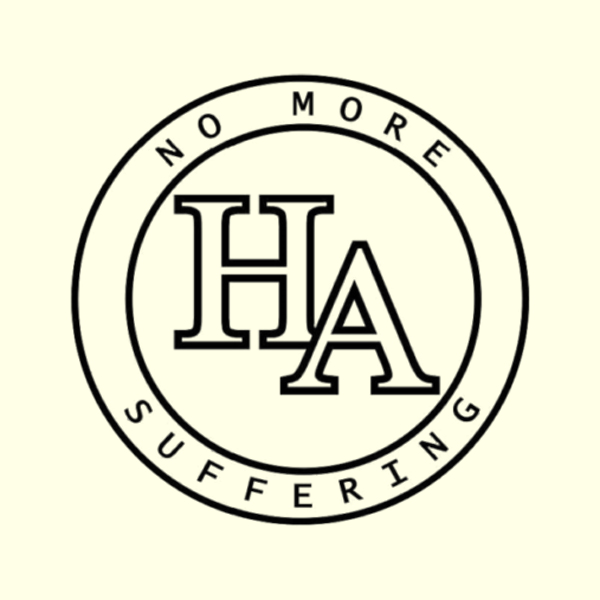
What is a Homegroup
When we found ourselves being directed towards the fellowship of Heroin Anonymous a common piece of advice we received was to join a home group. Many of us had no idea what a home group is or why we should join one. In the end, we have found being part of a home group to be one of our most beneficial and rewarding experiences.
A home group is a group that we have made the commitment to regularly attend and provide service to when needed. When you find a meeting that you feel comfortable with and can make it to on a regular basis, it is strongly suggested that you become a home group member. To become a member, just inquire with a current home group member what needs to be done for you to join.
After joining a home group, we quickly realized the benefits. For many of us, it was the first place we had in a while where we belonged and felt welcomed. We slowly began to open up and feel more comfortable in the rooms. In many cases, our fellow home group members have become our friends and great supporters in our sobriety. We have also found that by making the commitment to regularly attend the meeting, we have provided ourselves with some accountability. Sometimes when we felt too busy or too overwhelmed, our personal commitment to our home group ensured we attended a meeting and remained of service instead of staying at home.
Through our home groups, we also found many opportunities to be of service and give back to the fellowship. A meeting usually requires the help of many individuals to run efficiently week in and week out. By regularly attending business meetings we were able to obtain service positions. For many of us, our first service position was making coffee, helping set up the room, or picking up cigarette butts. Other service positions also include meeting chairperson, meeting secretary, or general service representative. All are equally important positions that help ensure the meeting is open and ready for any newcomer seeking a message of hope and sobriety.
By joining a home group we were given the opportunity to be part of something positive. Having a group of people by our side that can give us advice and help us through our hard times has been a great help to us. Our ability to be of service to any newcomers has given our life new meaning and purpose. To watch our little fellowship grow and see others gain a firm foundation in sobriety is an experience you will surely not want to miss.
Revised June 2022
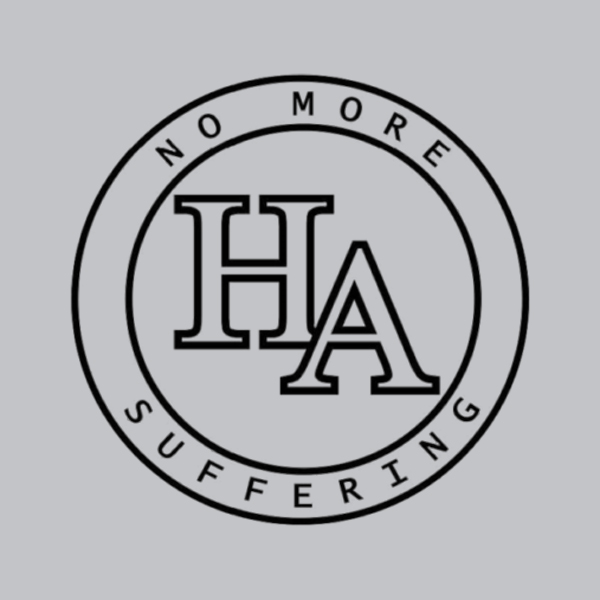
Sponsorship
“Having had a spiritual awakening as the result of these steps, we tried to carry this message to heroin addicts, and to practice these principles in all our affairs.”
When many of us entered Heroin Anonymous the concept that we never had to use again seemed like an impossible objective. We struggled to achieve even a few days of sobriety and in many cases, our lives were in disarray. Many of our personal relationships were in ruin, life often seemed to be lacking any purpose other than getting high, and some of us had lost our jobs and our homes. For some of us, it was our first time in the rooms and we were met with confusion as we gazed upon the steps. For others we were coming back after finding we could not achieve long term sobriety working the program on our own, taking the parts we liked while discarding the ones we did not.
That is why we of Heroin Anonymous find it essential to have a sponsor. A sponsor is a person who has worked all 12 Steps and continues to practice them in their life. He or she is a person who can offer guidance and support in recovery. With their experience in living the 12 Steps, a sponsor can offer many suggestions on how to approach daily life situations and how to address those instances where one’s sobriety is at risk.
Freedom from heroin addiction comes from working all 12 steps and this cannot be done alone. The 12 steps are a process for “waking up” spiritually. This is why the sponsor’s primary role is to guide another heroin addict through the 12 steps. A sponsor will not keep you sober, but by guiding you on the path to your own spiritual experience, they can help you find lifelong sobriety. When practicing the 12 steps in all of our affairs, we have found that most of the problems that weighed us down in our addiction are solved.
Many of us had misconceptions about the role of a sponsor. We quickly learned that it is not a sponsor’s responsibility to provide a sponsee with a job, lend money, or give them a place to live. However, some sponsors have been known to provide assistance in these areas when warranted. A sponsor is not someone who wishes to control their sponsee’s every move. It is not a sponsor’s role to decide where they should work – whom they should or should not date – whether or not they should remain married -or where the sponsee should go to meetings. A sponsor is not someone who will tell someone what to do, but rather, a sponsor is someone who can share their experience and be a guide through the 12 steps.
While the prospect of picking a sponsor may seem daunting, it does not need to be so. We found it helpful to think carefully about who would be a good sponsor for us. In many instances, we asked for advice from those around us. While it was essential for us to consider the matter, it was also important not to delay too long out of fear or anxiety.
As we progressed through the steps and gained a firm foothold on our own sobriety we, in turn, sought to help others just as our sponsors helped us. We have found this to be one of the most rewarding experiences in our lives today. To see others recover and our fellowship grow has brought new purpose and meaning into our lives. There is an expression you will hear in some of our meetings…
“I cannot keep it if I do not give it away”
Revised June 2022
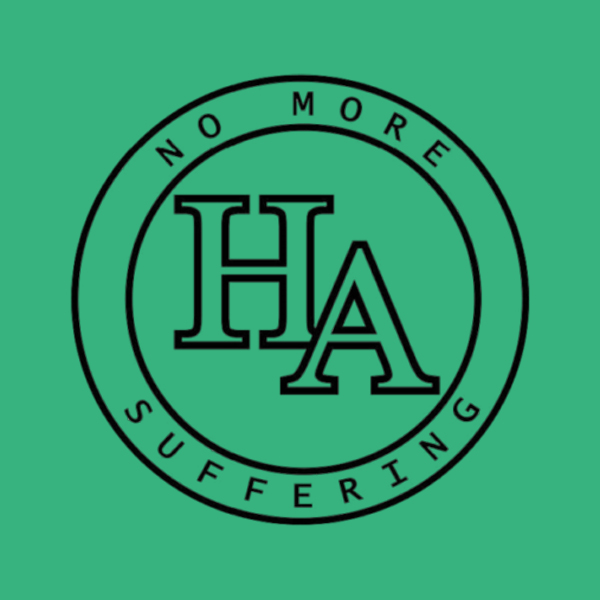
Self Supporting
Money, Responsibility, and Spirituality
The 7th Tradition states, “Every H.A. group ought to be fully self-supporting, declining outside contributions.” As active heroin addicts, we hustled, robbed, and manipulated people into taking care of us, instead of taking responsibility for our own lives, materially or spiritually. The 7th tradition reminds us as recovered heroin addicts we should strive for self-sufficiency as an ideal. Likewise, Tradition 7 suggests that all groups should strive for this same ideal.
To keep our fellowship autonomous, Heroin Anonymous only accepts contributions from its members. If H.A. was to receive financial support from outside entities, those entities may claim some form of authority within H.A., thus obscuring our primary purpose. For many, the words “donation” and “contribution” may appear synonymous. Upon further consideration, however, we find important distinctions. “Donation” more frequently refers to a gift made to an outside entity. “Contribution”, on the other hand, has a more internal context, reflecting willingness as well as personal participation and responsibility. For example, one may “contribute” to their rent with other members of their household, but not “donate”. Thus, we suggest that money collected from our members to support our fellowship be referred to as “contributions” rather than “donations.”
Why do we need to talk about money in the first place? We need money to carry the message to the still-suffering heroin addict. For example, many of us are familiar with renting space to hold a Heroin Anonymous meeting so that the newcomer can find a similar experience to that with which we have been blessed. Meetings are not the only way money and resources can be utilized within our fellowship. We hold conferences and conventions, produce chips and literature, and maintain a website, all with the ultimate aim of supporting our primary purpose. Tradition 7 states, “Experience has often warned us that nothing can so surely destroy our spiritual heritage as futile disputes over property, money, and authority.” Our traditions emphasize that it is our responsibility as members to contribute to our fellowship.
At the home group level, members contribute to the meeting’s basket to maintain the meeting and retain a prudent reserve. A prudent reserve may be roughly one to three months of rent and supplies, such as; chips, literature, and coffee. While each group gets to decide its prudent reserve and determine how to utilize monies beyond this reserve, members would do well to
remember all lower levels of our service structure are supported by home group contributions. These lower levels of service, such as Districts, Areas, Regions, and World, help to guide and
support our fellowship toward our most precious goal of unity.
(Insert here suggested contributions styles and percentages – Pie Charts, see below)
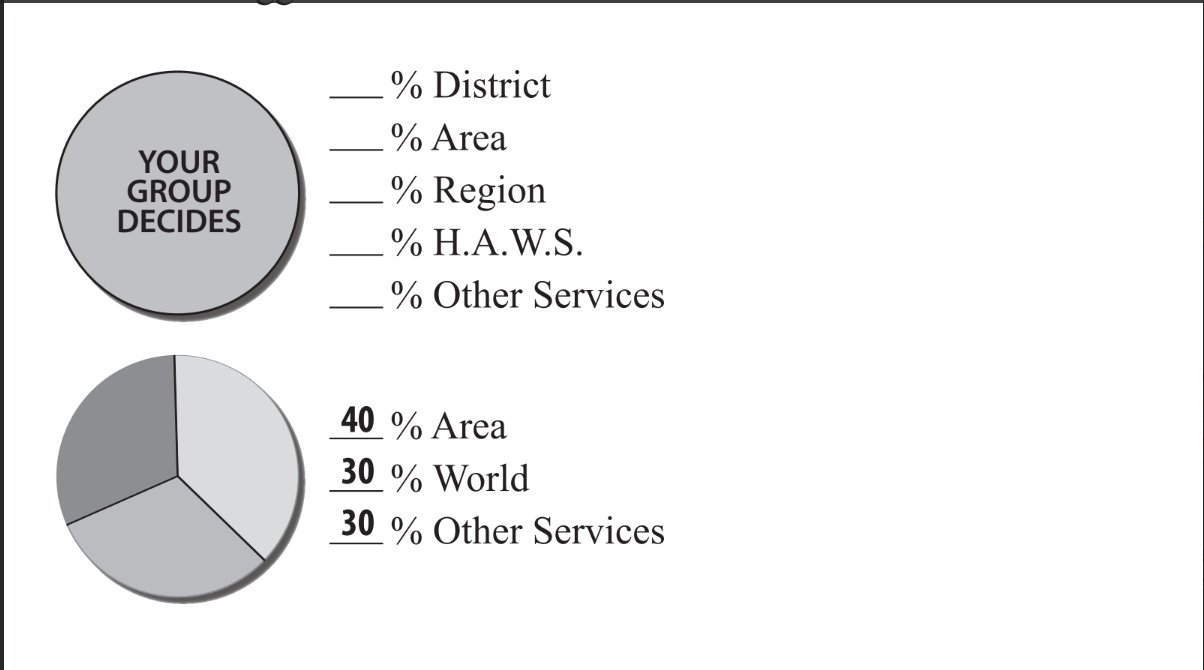
Ideally, these percentages are found after the prudent reserve is determined and set aside. It is each group’s responsibility to understand its interaction with our service structure and contribute accordingly. The success of our groups, and our fellowship as a whole, depend fully upon our individual member’s contributions. If you have found recovery in Heroin Anonymous, we suggest that you contribute to the fellowship that helped save us from the wreckage of our lives, so that we may continue to help others to recover from heroin addiction!
Revised November 2023
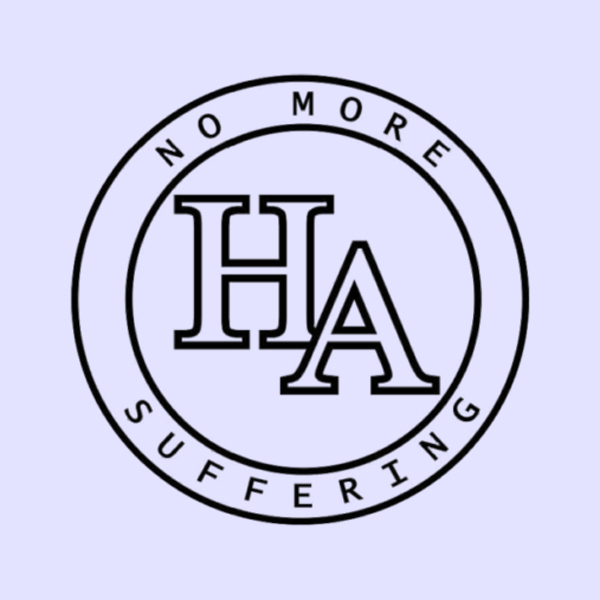
The Fellowship & the Program
What is Heroin Anonymous (H.A.)? Heroin Anonymous is both a fellowship of individuals who have found a solution to heroin addiction as well as a spiritual program of 12-Steps that enables us to live a life of sobriety. What is the fellowship? What is the program? Why is it important to make this distinction between the two? By describing both parts, we hope to answer these questions.
The Fellowship
The fellowship of Heroin Anonymous is made up of heroin addicts who meet regularly to help each other stay sober. Put simply, the fellowship is the sum of all individuals who define themselves as members. The Heroin Anonymous Preamble defines the roles and requirements for membership as follows: The only requirement for membership in the fellowship of H.A. is a desire to stop suffering from heroin addiction. There are no dues or fees for H.A. membership; we are self-supporting through our own contributions. H.A. is not allied with any sect, denomination, politics, organization or institution; does not engage in any controversy, neither endorses nor opposes any causes. Our primary purpose is to stay sober and help other heroin addicts achieve sobriety. It is in the fellowship that many of us have found camaraderie and connection with a community of individuals we can relate to and who suffer from the same condition. In the fellowship, we find our sponsors, homegroups, and people we can serve alongside to help others. We have found that Unity is at the heart of the fellowship. For many of us, the fellowship has become a new home. When we first entered Heroin Anonymous, it was the fellowship that greeted us with open arms and helped lead us to a solution to our heroin addiction. Most of our members will emphatically state that without the fellowship, we would not be where we are today.
The Program
Although the fellowship is a home for us and is instrumental in our sobriety, it alone is insufficient to achieve and maintain sobriety. This is where the program of H.A. comes in, which is adapted from the Twelve Steps of Alcoholics Anonymous. The program consists of actions we take in our daily lives to help us stay sober and find the freedom we seek. We discover that when working the Twelve Steps of Heroin Anonymous, our problem is removed and we no longer need heroin as a solution for our suffering. Inversely, we find that unless we are practicing this spiritual program, our sobriety is often precarious. In this pamphlet, you will find the Twelve Steps of Heroin Anonymous, which is our program of recovery.
The Fellowship and the Program
Many of us come to the fellowship of H.A. seeking a solution for our heroin addiction. Sometimes, when only attending meetings, we threw up our hands in despair, saying, “H.A. doesn’t work!” It was not until other members of our fellowship introduced us to the Program of H.A. that we were able to find sobriety. Today, we understand that the Fellowship and the Twelve Step Program of Heroin Anonymous are both vital components of our sobriety. In our Fellowship, you will see heroin addicts sincerely applying the Twelve Steps in their lives, helping one another, freely passing on their experience to the next person who is desperately searching for a way out of their own heroin addiction.
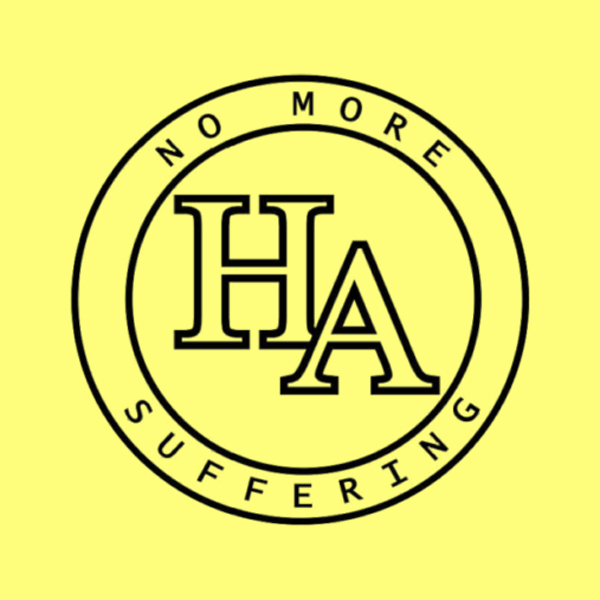
Higher Power
If will power alone were enough for us to manage our own lives and stay sober, it would not be necessary to find a Higher Power. Our experience clearly shows that we have not been able to do this by ourselves. Many of us tried to stay sober for a variety of reasons, but we were unable to achieve the lives we desired to live on our own power. As a result of unsuccessful attempts at sobriety, we concluded that we needed to seek help from a Power greater than ourselves.
Many of us entered Heroin Anonymous with preconceived notions of who and what God was. Some associated these ideas with the world’s great religions. Others scoffed at the idea of the existence of a God altogether. There were those who arrived with a great fondness for God and those who muttered Higher Power from their gritted teeth. What was clear in each instance was that we were unable to tap into the necessary Power to stay sober. Since we are unable to stay sober and manage our lives using our own will power, our lives truly depend on accessing this necessary Power.
What we usually did not consider was that we could have a God of our own understanding, a Higher Power that would grow out of our action and experience in the program. Some of us still resisted this idea, believing we had no right to change God, or that it would not work for us. We realized that this attitude was simply the reliance on old ideas which brought us down the path to where we now stand.
To our relief, members who came before us suggested that the only crucial ingredient was a willingness to believe. No one demanded what we believe or how we believe, rather that we are willing to believe in something greater than our own human power. All that was necessary was to have an open mind.
We realized that this Power could be anything we chose as long as it was more powerful than us. It did not matter what we called it. We could refer to it by any name that we wished. We were deciding to establish a relationship with some kind of Power of our own understanding.
With some time and spiritual growth, hearing the word “God” no longer brings up our biases and preconceived notions; now it simply means a Power greater than us, a God of our own understanding, or our Higher Power. Through the twelve steps of Heroin Anonymous, our Higher Power has become a God of our experience. It does not need to make logical sense to anyone else. Through our collective experiences, we have found it essential to become open-minded to spiritual principles, to be willing to believe in a Higher Power of our own conception, and to take the action necessary to have a vital spiritual experience. If we are able to grasp this mindset, it is possible to achieve long term sobriety and a life worth living.
Revised June 2022
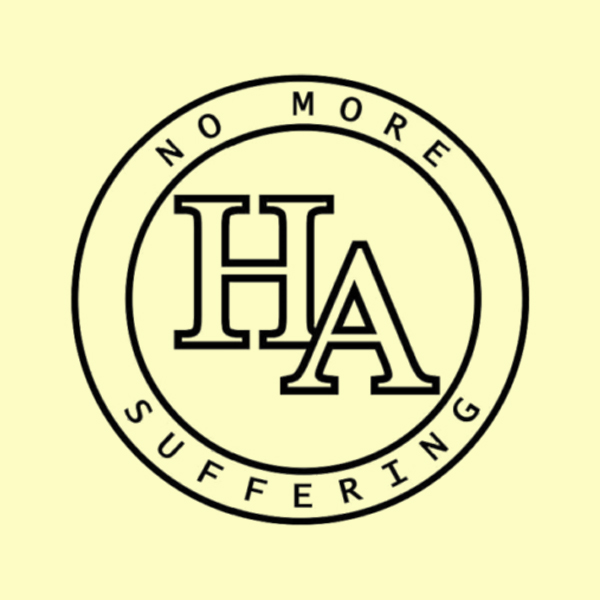
Who Is a Heroin Addict?
The only requirement for membership is a desire to stop suffering from heroin addiction (HA 3rd Tradition).
For some of our members, admitting we were heroin addicts happened long before we ever made it to our first meetings. For others, coming into the rooms and introducing ourselves as heroin addicts seemed humiliating. Perhaps we were down on our luck or ran into some legal trouble, but all we needed was a break from heroin to be all right. If only we could make it through the withdrawals, we could put our lives back together. Whatever our initial conceptions, we found we had to honestly determine if we were heroin addicts before we could recover.
Our members come from all walks of life. Some of us maintained jobs and relationships while others of us lost those things a long time ago. Some of us smoked heroin, some of us snorted it, and some of us injected it. Many of us had serious legal problems and a good many more had none at all. Some of our members were brought to the brink of death through multiple overdoses. Some of us never overdosed at all.
While we have as many different experiences as there are members in our fellowship, we all have some things in common. We all found that despite our best efforts, we had lost all control over heroin once we started using. We told ourselves we would save some for the morning or not use at work, but quickly these promises were broken.. Our best plans to control when and how much we use seemed to fail nearly every time. How often we told ourselves it would only be one time and instead we were off to the races again!
We also found that we were unable to stop using, or if we did stop, were unable to stay stopped. How many of us, relieved to be alive after an overdose, told ourselves we would never use again and then found ourselves getting high the next day. Many of us promised we would stop when we got into legal trouble, then found ourselves failing drug tests at our probation office. In moments of despair, some of us swore we would never use again to our families or our kids, only to be ashamed to be high shortly after.
In moments of clarity, we could concede to ourselves that we were no longer in control. We could not control how much we used and we could not stop despite our best efforts and intentions.
We do not like to proclaim anyone as being a heroin addict. The person who needs to make that decision is you. If you are unsure you are an addict, here are some helpful questions:
1. Have you ever used more heroin than you planned?
2. Do you wish you could stop using heroin and find that you are unable to quit?
3. Do you consume the entire amount of heroin you have and then immediately desire to get more?
4. Is your heroin use negatively affecting your relationships with friends or family?
5. Have you ever stopped using or detoxed and then found yourself unable to quit entirely?
6. Have you continued to use heroin even after you experienced an overdose?
7. Are you preoccupied with getting heroin when you do not have it?
8. Are you afraid that if you stop using heroin that you will not be able to function?
If you answered yes to any of these questions or are still unsure, you may want to consider going to some Heroin Anonymous meetings.By admitting we were heroin addicts, we have found freedom from our addiction. Our lives have taken on new meaning and purpose. No longer do we have to walk around with fear and anxiety. If you are a heroin addict, there is a solution that worked, and continues to work for us.
Revised June 2022
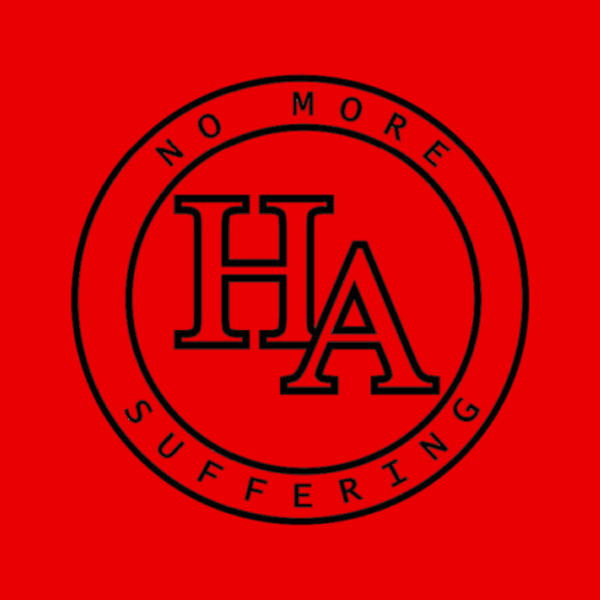
H.A. and M.A.T.
In a world full of opinions, conflicts, and misunderstandings, it would do well for our fellowship to
prioritize the guidelines set by our 12 Traditions. The ultimate aim of our Traditions is unity
supported by interdependent, spiritual principles driving us toward ideals and goals. According
to our 10th Tradition, one goal is to never be divided by any controversial issue or to publicly
take sides on any questions that fall outside of our purview.
Heroin Anonymous (H.A.) does not express opinions on any civil, social, medical, legal, or
religious issues. Moreover, we do not comment on even addiction-related issues such as
criminal justice, drug legislation, HIV/HCV infection, or syringe services programs. Such
opinions -for or against- could be potentially fatal to our fellowship.
While each member of H.A. may carry deep personal convictions and beliefs where it concerns
Our Fellowship, we must leave aside these attachments in observation of the 10th Tradition. We
have seen the dissolution of other fellowships due to individual opinion becoming group opinion
and resulting in discordant action. H.A. does not dispute the many worthy causes available in
the modern world. We believe that the survival and growth of H.A. and its message is of
paramount importance, surpassing whatever impact we may be able to have individually or
collectively in other arenas. The vitality of this effort and the message we carry can be diluted,
weakened, and misdirected when we are led off course.
Each age deals with a new version of the same problems. One of the issues faced by the
modern world has been the opioid epidemic with its resulting impacts and subsequent
resolutions to such a global and devastating problem. A suggested resolution to this epidemic is
the implementation of Medication-Assisted Treatment (MAT). MAT is defined as the use of
medications in combination with counseling and behavioral therapies to treat addiction.
Although Our Fellowship cooperates widely with the medical community and may even include
membership of such practitioners, we must recognize our roles as members of Heroin
Anonymous. As such, we do not act as doctors, counselors, or therapists, and thus, we should
not advocate or denounce what is offered by the medical community.
Accordingly, our 3rd Tradition states, “The only requirement for H.A. membership is a desire to
stop suffering from heroin addiction.” As recovered heroin addicts, our responsibility is to carry
the message to the still suffering heroin addict. To achieve this, we bring “no attitude of Holier
Than Thou; nothing whatever except a sincere desire to be helpful.” 1 It is far outside our scope
of authority to pronounce someone as a heroin addict, to judge the quality of another’s sobriety,
to quantify one’s desire for recovery, or to dictate decisions best left to professionals.
We continue to experience the miraculous happening in us and through our lives by practicing a
mode of living that is spiritual in nature. We do not, however, pridefully claim ownership over the
1 W., B. (2002). Alcoholics Anonymous: The story of how many thousands of men and women have recovered from
alcoholism. Chapter 2:There is a Solution, p.18. Alcoholics Anonymous World Services.
treatment of heroin addiction or the roads to recovery. Even the solution we have found has
been given us. God has provided this world with many miracles, including a myriad of
professionals and the modalities in which they practice.
As Heroin Anonymous members, we are guided by our 12 Traditions which address our
relationships with the outside world and within Our Fellowship. As individuals, we each get to
decide when, how, and how much to help the heroin addict who still suffers. Rarely is the path
to recovery linear. When considering how to interact with newcomers, let us remember the
opportunity we were given, the compassion shown, and the open hand of Heroin Anonymous.
We want all who find our fellowship to be welcomed at our meetings. This welcoming
environment allows newcomers to decide whether H.A. is a recovery program for them.

What is Our Purpose
This pamphlet aims to define Primary Purpose as well as to outline the use of the Fifth Tradition,
in both concept and action. This pamphlet is designed as information for Heroin Anonymous
groups who are in observance of the Twelve Traditions as well as individuals within those
groups interested in expanding their own understanding.
In the Fellowship, we often see Singleness of Purpose and Primary Purpose used
interchangeably. Singleness of Purpose helps to define who the group aims to help as well as
who can participate in a Heroin Anonymous meeting or group. Heroin Anonymous groups
abiding by Singleness of Purpose guide members’ discussions solely to their experience with
heroin addiction. Historically, Singleness of Purpose is derivative of the Fifth Tradition.
According to H.A.’s 5th Tradition: “Each group has but one primary purpose – to carry its
message to the heroin addict who still suffers.” Our message is sobriety – freedom from
heroin addiction. Carrying this message through the practice of the Twelve Steps is the
essential purpose of any Heroin Anonymous Group.
The application of the Fifth Tradition guides groups composed of independent individuals to
keep this single purpose in mind, sobriety. We have a responsibility to the newcomer to bring a
message of hope as someone once brought that message to us. As we recover from heroin
addiction, we gain greater awareness of our human limitations, which leaves room for humility
and reveals the need for a relationship with man and God. This same principle applies to our
groups. When our purpose is guided by boundaries, it clarifies our scope and function. The Fifth
Tradition supports the Legacy of Unity. Unity is the principle behind the First Tradition and the
ultimate ideal of each of our Twelve Traditions. This understanding of our limitations can aid in
our sense of belonging.
Practicing Humility
Keeping the Legacy of Unity in mind, when consideration is given to one Tradition, one would
do well to reflect on its belonging to the Traditions as a whole. Heroin Anonymous recognizes
and respects the H.A. service structure in accordance with H.A.’s 4th Tradition which states,
“Each group should be autonomous except in matters affecting other groups or HA as a
whole." Practicing the Fourth Tradition means that each group has the freedom to structure its
customs following the group conscience – a reflection of God, our ultimate authority. The Fourth
Tradition implies the need for consideration, communication, and consultation. This need is
present not only within our groups but also within our larger fellowship and potentially with other
fellowships as well.
Our experience indicates it is vital that each individual in our diverse fellowship become
informed for themselves, and then practice principles before personalities. Our road is wide and
inclusive. God has the wheel. Let us do one thing well – sobriety cannot be kept unless it is
given away.
